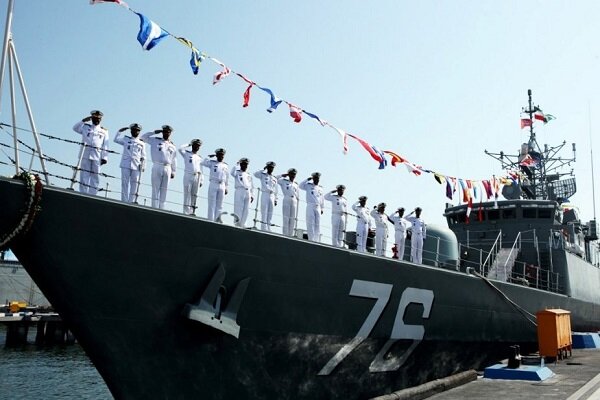To the high seas and beyond
Iranian “steel mountain” and the multilayered strategy of maintaining peace in the region

TEHRAN— Iranian Navy unveiled a destroyer and a minesweeper through a virtual videoconference led by President Hassan Rouhani on Monday.
Dena is the fourth Jamaran-class destroyer built by the Naval Industries of the Defense Ministry.
The Iranian destroyer – which is named after one of the most famous mountaintops of the country – is equipped with various defense and offense systems, is designed to make long journeys in the oceans, and is capable of detecting, tracking, and hitting various aerial, surface, and submarine targets.
Dena is reported to weigh more than 1300 tons, and is equipped with 4 cruise missiles ready to open fire at any threats. It is also capable of carrying helicopters on its deck.
Shahin, the other new addition to the Iranian naval fleet, is a minesweeper with a length of 33 meters that was developed and built by local Defense Ministry engineers.
The military ship is outfitted with cutting-edge technology that allows it to detect and detonate several types of naval mines.
Iranian military specialists and technicians have made significant progress in recent years in manufacturing a wide spectrum of indigenous weaponry, allowing the armed forces to be self-sufficient in the armaments sphere.
In the inauguration ceremony attended by top military commanders, President Rouhani ordered the Navy to unveil the latest accomplishments.
"The power of Iran and our armed forces is high only for deterrence and defense. We do not intend for war and tension, but will not yield to the invading powers," he remarked.
He also said that today, the Islamic Republic of Iran is a power that guarantees the security of the region for itself and its neighbors.
“We explicitly declare to our dear neighbors that the power of our armed forces is not against you but also your supporter and protector, as well as for the Persian Gulf and the Sea of Oman, and the Iranian army is the defender of its own and regional countries’ independence,” the president added.
Iran has long been the icon of the peace in the region, offering peace initiatives and inviting neighbors and regional countries to sit at the same table to negotiate. Iranian politicians have always believed that tensions in the region can be reduced through dialogue.
Iran’s multilayered strategy shows the complexity of diplomacy in the region. On the one hand, the approach of peace initiatives put forward by the Islamic Republic has earned the country a reputation as a key player in maintaining peace and security in the region. And on the other hand, Iran, a country surrounded by 40 U.S. military bases in the West Asia, needs to boost its defensive abilities to protect itself from the unwanted guests in the region. These unwanted guests have time and again shown that they do not understand diplomacy, and they act barbarically. Iraq and Afghanistan are true examples of the American barbarism.
With Iran enhancing its defensive capabilities, the neighboring countries can also benefit from the advanced defensive equipment the Islamic Republic has.
The West Asia has long suffered from instability and tension, too weak to reform itself. That is when the neighbors come to the rescue. For example, in case of ISIS, Iran helped its neighbor Iraq to retain stability. Iran also helped Syria overthrow ISIS.
A coin has two sides. Iran has offered peace initiatives such as HOPE (Hormuz Peace Endeavor), Regional Dialogue Forum, the 4-point plan to establish peace in Yemen, the 4-point plan to establish peace in Syria, the Palestinian cause, etc. On the other side of the coin, there is Iran’s military power which assures every country in West Asia that there will be a strong help in case an intruding power comes to destabilize.
The recent negotiations between Iran and Saudi Arabia, along with the recent unveilings of the Iranian naval force accomplishments suggest the perfect implementation of this multi-layered strategy of boosting defensive facilities and capabilities, along with shaping dialogue and negotiating with neighboring countries.
This strategy was highlighted on Monday once again by Iranian officials. “Even when Saudi Arabia was not interested in negotiations, we stressed that the dialogue is the best way to resolve the issues,” Iranian Foreign Ministry spokesman, Saeed Khatibzadeh said on Monday – the same day Dena was unveiled – and added that Iran will take the dialogue forward in a noteworthy manner.
SA/PA
